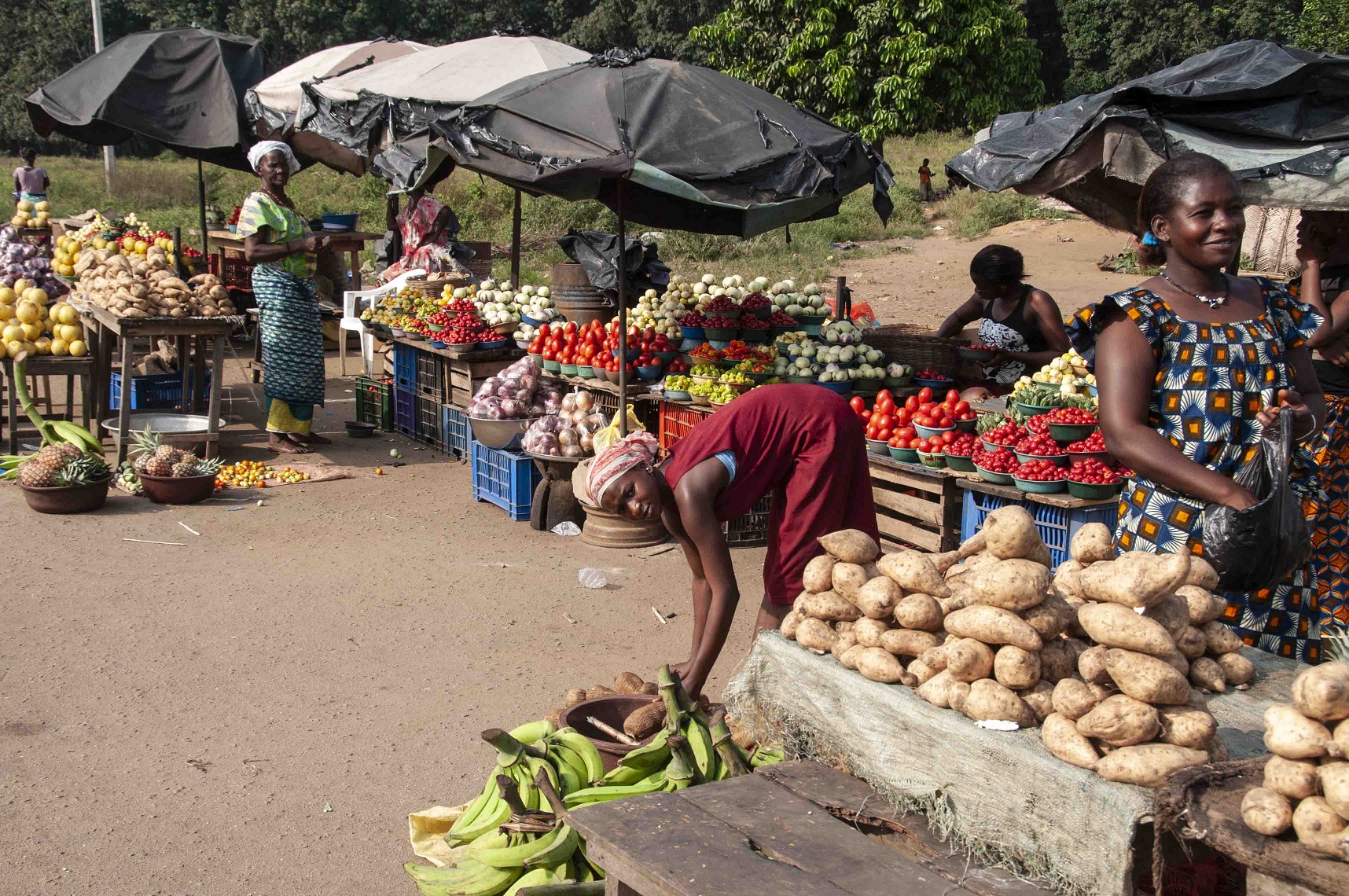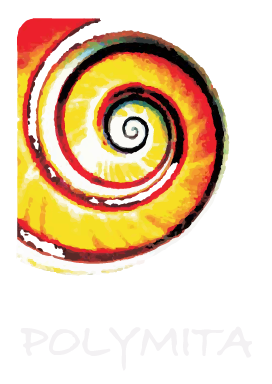

ARTICLE
AFRICA: FROM HEMINGWAY TO KAPUŚCIŃSKI
BY: JULIO A. LARRAMENDI
(Written text and photographs taken in January 2012)
Right now I am in Africa. In the black Africa of the Ivory Coast. In the Africa of our ancestors, taken to the "New World" by force, as slaves, and today an essential part of Cuban nationality.
On my first visit, in December 2011, there was still an atmosphere of danger in the streets, with heavily armed UN convoys circulating through the city after a terrible civil war caused by the non-acceptance by the former president, of the election results. Everyone warned me not to go out alone, and on more than one occasion I received a hostile look. For many Africans I am a "white", nothing more, nothing less.
Today, months later, something has changed. Already at the airport you can see organization: the dozens of hustlers who almost threatened you by offering their services, do not exist, and they leave quickly. The streets, still full of street vendors and with an infernal traffic, are clean. The city center, its churches and mosques bustle with well-dressed people. They are all "black." It is the month of July, and Europeans and Lebanese vacation in their countries. We are also in Ramadan.
In these weeks I have traveled much more than on my first visit, both in Abidjan and in the interior of the country. I visited Gran Bassam, the first colonial capital, where the French built a beautiful little city, recently declared a World Heritage Site, which was abandoned by a yellow fever epidemic a few years after it was founded. There I entered the old houses, today most of them in ruins, beautiful constructions from the late nineteenth and early twentieth centuries that will be relatively easy to restore… when there is money. Its indisputable historical and architectural values deserve a detailed study, yet to be done.
In each place visited, I have only received kindness and acceptance, another important change, compared to December, when in Assinie, for taking photos of some fishermen returning from their work, the village chief, machete in hand, made a big scandal in me under the argument that it brought bad luck to the boats. Thanks to two Lebanese who confronted him on harsh terms, there was the incident. It was the first time in my life that I felt really threatened.
I suppose that tranquility has returned after the terrible months of the civil war.
What causes those cyclical crises, those moments in which the worst comes out of man and is capable of killing someone who until yesterday was his neighbor? How to explain the massacres in the name of a supposed ideal, a religion, or any justification? * In Africa one could speak of tribalism, enormous poverty, inequalities, lack of education, colonialism and exploitation, and it would still be much more complex. The truth is that such conflicts continue to break out in the 21st century.
To try, first to know, and then to understand, this huge continent, its peoples and its history, for a long time I have been reading what has been written about Africa.
Since he was little, Ernest Hemingway, with his stories and novels, his safaris and his life in Havana; then, the Cuban participation in the wars of liberation in the Congo, Ethiopia and Angola, with our dead in tow and much to remember; Mandela and the universal example of him and, more recently, the chronicles of the Polish Ryszard Kapuściński, who spent decades living and reporting what was happening on the black continent.
For Hemingway and his great human themes, Africa was only an exotic backdrop to his stories. Africans passed like nameless ghosts, serving their characters, without meaningful participation in the plot. And although his texts have great universal value, they were narratives about whites and for whites. Nor should you ask for pears from the elm: he was a man of his time, who lived in a tropical refuge in Finca Vigía, drank mojitos and daiquiris in the bars of Havana, fished for needles in the Gulf Stream, hunted in Tanganyika and wrote , standing, their experiences and shortcomings. He bequeathed us several brilliant pages, his style, concise and practical, beautiful and direct, and The Old Man and the Sea.
That of the Pole is another story. Kapuściński came to Africa as a correspondent in 1958 and there he stayed for 40 long years. His chronicles, published in the book Ébano, show the true face of the continent, its dreams and hopes, its contradictions and frustrations, its advances and setbacks. The characters are real, they are born from the common man, from impoverished cities and villages lost in time, from men who try to progress and from angry tribes; they are the stories told in a mud hut or under the shade of a hundred-year-old tree. They convey the beauty of the unknown, the stark vision of joys and sorrows, of wars and conflicts, without adornment, with rigor, with skill.
In the most promoted texts about Africa, the great absentee is the African writer, the one who from his experiences and beliefs can offer his vision, black and committed to his own, unprejudiced and inclusive.
Meanwhile, each visitor will take their own biased version of what happens. The influence of the big press is evident and responds to pre-established canons.
Africa remains a land to discover and describe. At least for me.
* In February of this year, 2012, violent clashes were recorded in the country's capital.
Right now I am in Africa. In the black Africa of the Ivory Coast. In the Africa of our ancestors, taken to the "New World" by force, as slaves, and today an essential part of Cuban nationality.
On my first visit, in December 2011, there was still an atmosphere of danger in the streets, with heavily armed UN convoys circulating through the city after a terrible civil war caused by the non-acceptance by the former president, of the election results. Everyone warned me not to go out alone, and on more than one occasion I received a hostile look. For many Africans I am a "white", nothing more, nothing less.
Today, months later, something has changed. Already at the airport you can see organization: the dozens of hustlers who almost threatened you by offering their services, do not exist, and they leave quickly. The streets, still full of street vendors and with an infernal traffic, are clean. The city center, its churches and mosques bustle with well-dressed people. They are all "black." It is the month of July, and Europeans and Lebanese vacation in their countries. We are also in Ramadan.
In these weeks I have traveled much more than on my first visit, both in Abidjan and in the interior of the country. I visited Gran Bassam, the first colonial capital, where the French built a beautiful little city, recently declared a World Heritage Site, which was abandoned by a yellow fever epidemic a few years after it was founded. There I entered the old houses, today most of them in ruins, beautiful constructions from the late nineteenth and early twentieth centuries that will be relatively easy to restore… when there is money. Its indisputable historical and architectural values deserve a detailed study, yet to be done.
In each place visited, I have only received kindness and acceptance, another important change, compared to December, when in Assinie, for taking photos of some fishermen returning from their work, the village chief, machete in hand, made a big scandal in me under the argument that it brought bad luck to the boats. Thanks to two Lebanese who confronted him on harsh terms, there was the incident. It was the first time in my life that I felt really threatened.
I suppose that tranquility has returned after the terrible months of the civil war.
What causes those cyclical crises, those moments in which the worst comes out of man and is capable of killing someone who until yesterday was his neighbor? How to explain the massacres in the name of a supposed ideal, a religion, or any justification? * In Africa one could speak of tribalism, enormous poverty, inequalities, lack of education, colonialism and exploitation, and it would still be much more complex. The truth is that such conflicts continue to break out in the 21st century.
To try, first to know, and then to understand, this huge continent, its peoples and its history, for a long time I have been reading what has been written about Africa.
Since he was little, Ernest Hemingway, with his stories and novels, his safaris and his life in Havana; then, the Cuban participation in the wars of liberation in the Congo, Ethiopia and Angola, with our dead in tow and much to remember; Mandela and the universal example of him and, more recently, the chronicles of the Polish Ryszard Kapuściński, who spent decades living and reporting what was happening on the black continent.
For Hemingway and his great human themes, Africa was only an exotic backdrop to his stories. Africans passed like nameless ghosts, serving their characters, without meaningful participation in the plot. And although his texts have great universal value, they were narratives about whites and for whites. Nor should you ask for pears from the elm: he was a man of his time, who lived in a tropical refuge in Finca Vigía, drank mojitos and daiquiris in the bars of Havana, fished for needles in the Gulf Stream, hunted in Tanganyika and wrote , standing, their experiences and shortcomings. He bequeathed us several brilliant pages, his style, concise and practical, beautiful and direct, and The Old Man and the Sea.
That of the Pole is another story. Kapuściński came to Africa as a correspondent in 1958 and there he stayed for 40 long years. His chronicles, published in the book Ébano, show the true face of the continent, its dreams and hopes, its contradictions and frustrations, its advances and setbacks. The characters are real, they are born from the common man, from impoverished cities and villages lost in time, from men who try to progress and from angry tribes; they are the stories told in a mud hut or under the shade of a hundred-year-old tree. They convey the beauty of the unknown, the stark vision of joys and sorrows, of wars and conflicts, without adornment, with rigor, with skill.
In the most promoted texts about Africa, the great absentee is the African writer, the one who from his experiences and beliefs can offer his vision, black and committed to his own, unprejudiced and inclusive.
Meanwhile, each visitor will take their own biased version of what happens. The influence of the big press is evident and responds to pre-established canons.
Africa remains a land to discover and describe. At least for me.
* In February of this year, 2012, violent clashes were recorded in the country's capital.



